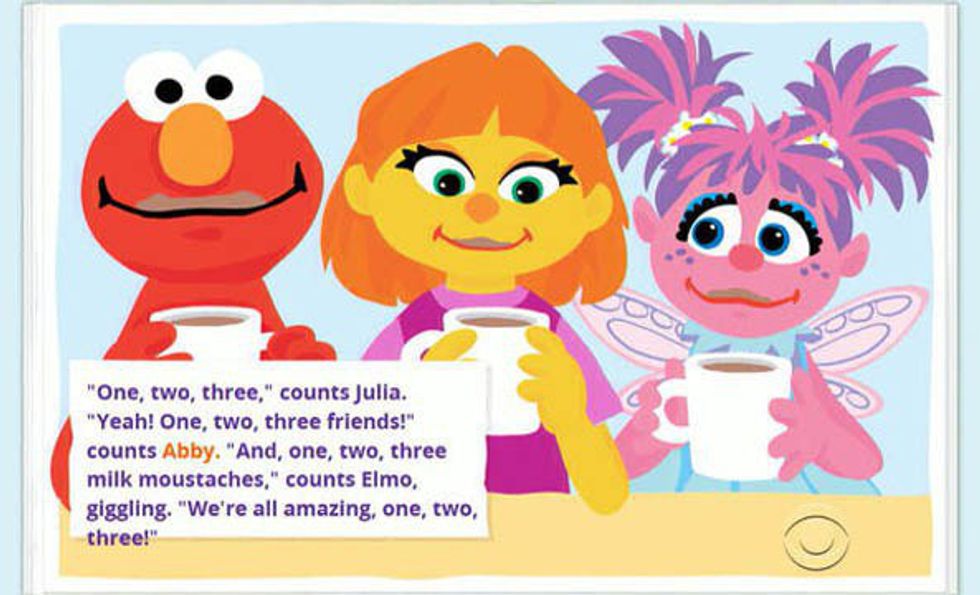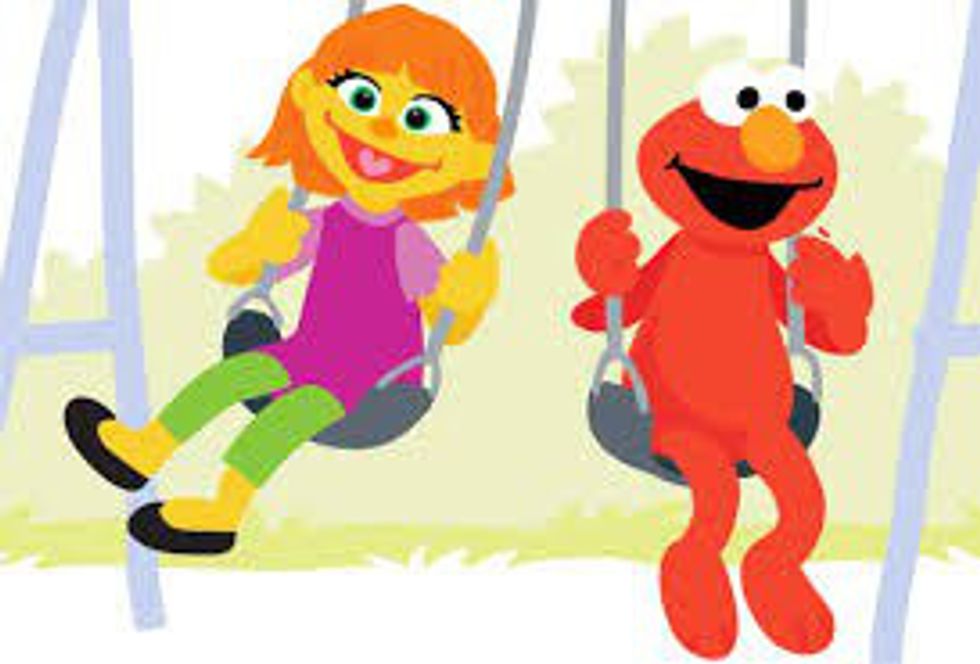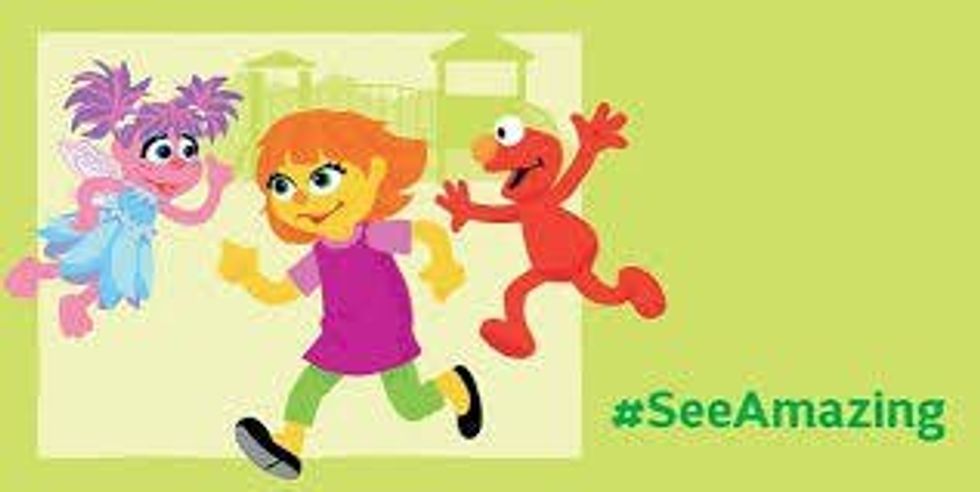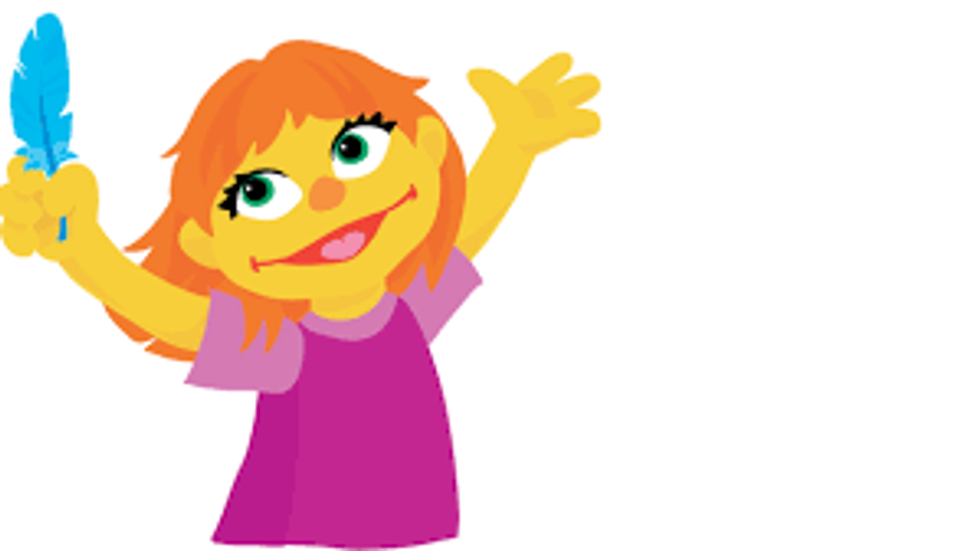"Sesame Street" is not only a TV show, but it acts as an educational resource for many parents with children in the toddler/preschool demographic. Growing up, Big Bird, Bert and Ernie, and Elmo were some of my favorite characters (I was known to run around the house singing the “Elmo’s World” theme song or “Rubber Duckie”). With more than 4,500 episodes beginning in 1969, "Sesame Street" is a cultural phenomena spanning not only years, but also generations. This week, "Sesame Street" has announced that they are launching a new initiative supporting autism awareness and education that includes creating a character with Autism named “Julia.”
Via Today.com
Julia looks like any other character on the TV show, which makes her totally relatable to children watching the show because at first glance they would notice nothing different. Julia’s character acts differently from the other characters on the TV show but this is celebrated. When Julia is introduced it is explained that she has autism.

Via Koin.com
“Children with autism are five times more likely to get bullied” -- it may be because kids are afraid of those different from them, it may be something more, but ignoring the problem will not make it better. I see this as an opportunity, not only for kids to learn about differences and how to react to them but an opportunity for the stigmatization of disabilities and mental illness to be erased from the ground up. If kids are seeing in their favorite TV show that just because someone is different does not mean that they should not be friends with them, that they cannot interact with them, and they should not be an active part of society then these people with disabilities of any kind will be much more likely to be accepted into society- only making their lives easier.

Via Koin.com
These kids will be learning acceptance and understanding right beside their 1, 2, 3s and their A, B, Cs; if 2- and 3-year-olds can learn this concept, why is it so hard for many adults?





















